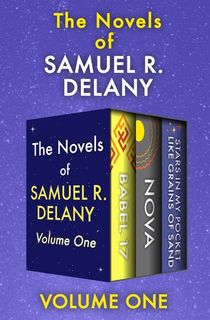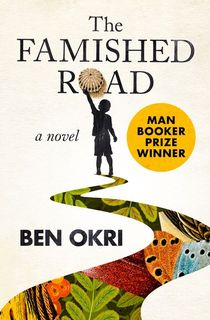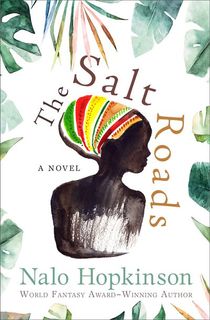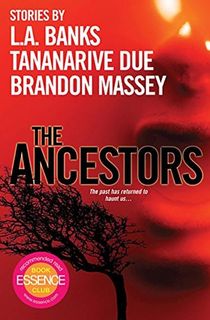Afrofuturism is not a new phenomenon. The long timeline of the genre has been reduced, albeit expectedly, to Black Panther. Ask your friend what they know about Afrofuturism, and the first thing many will talk about is Wakanda.
But, as author Tade Thompson pointed out in 2018, African and African-American SFF has been around for longer than the Marvel hero.
Afrofuturism, as a genre of fiction, draws from the history of Africa and the African diaspora to imagine a future free of Black subjugation. It infuses magical realism, fantasy, science, and technological innovations to build worlds that are not only led by Black characters, but feature liberated futures.
Afrofuturism was a term coined in 1993 by Mark Dery in his article “Black to the Future: Interviews With Samuel R. Delany, Greg Tate, and Tricia Rose". Dery laid out the questions driving the philosophy of Afrofuturism:
"Can a community whose past has been deliberately rubbed out, and whose energies have subsequently been consumed by the search for legible traces of its history, imagine possible futures? Furthermore, isn’t the unreal estate of the future already owned by the technocrats, futurologists, streamliners, and set designers ― white to a man ― who have engineered our collective fantasies? [...] Speculative fiction that treats African-American themes and addresses African-American concerns in the context of twentieth-century technoculture — and, more generally, African-American signification that appropriates images of technology and a prosthetically enhanced future — might for want of a better term, be called ‘Afrofuturism.'
Afrofuturism reimagines Black history and the future to present it in new, engaging, and impactful ways. Author and scholar Ytasha L. Womack explains that as an artistic genre, Afrofuturism blends imagination, technology, Black cultures, liberation, and mysticism. It is a "way of looking at the future and alternate realities through a Black cultural lens," including those from Africa and the African diaspora.
RELATED: Explore The Deep, a Stunning and Collaborative Afrofuturist Novel
However, long before Mark Dery coined the term 'Afrofuturism,' there were writers working in the genre. For example, Blake; or, The Huts of America by Martin R. Delany was published in 1859. Samuel R. Delany has been writing sci-fi from Black experience since the 1960s.
RELATED: Explore Afrofuturism With These 13 Must-Watch Afrofuturist Movies
The phenomenal Octavia Butler wrote books that meditated on slavery, time travel, and genetics, that showed worlds where Black people were agents of change.
In her books like Lilith's Blood, Kindred, and Parable of the Sower, Black women protagonists interacted with the extraordinary to forge new worlds. Victor LaValle also attracted attention for his 1999 debut gritty, realistic short story collection, Slapboxing with Jesus.
More recent manifestations of the Afrofuturist genre can be seen in works by N.K. Jemisin, P. Djèli Clark, Nalo Hopkinson, Colson Whitehead, Tananarive Due, Karen Lord, and others.
Although the term Afrofuturism seems encompassing, it has been argued that it excludes a very large part of the genre: Africa. As Adilifu Nama notes in their article Brave black Worlds: black Superheroes as Science Fiction Cipher: “in America, there is a dubious history of presenting Africa as a primitive and backward nation in books, television, and film.”
And in the preface to her short story anthology, Intruders, Mohale Mashigo in 2018 suggested that Afrofuturism, as a term, does not work for African writers in the speculative fiction genre. She wrote: "I believe Africans, living in Africa, need something entirely different from Afrofuturism. I’m not going to coin a phrase but please feel free to do so.”
Hugo and Nebula Award-winning Nigerian-American author, Nnedi Okarafor, coined the term Africanfuturism. Though related to Afrofuturism, Africanfuturism is specific and rooted in African cultures, history, mythologies, and technology. It doesn't center the West in its narratives. Africanfuturism mostly portrays a vision of the future for Africa, with little to no concern with Western worlds. As Okorafor writes:
"Afrofuturism: Wakanda builds its first outpost in Oakland, CA, USA.
Africanfuturism: Wakanda builds its first outpost in a neighboring African country."
The first African SFF books were arguably Gandoki (1934) and Nanga Kon (1932), which won the International African Institute Competition for 1932. Nanga Kon by Jean-Louis Njemba Medu is an interesting narrative of folktales in Cameroon about white first contact with the hinterlands. Nigeria was the focus for Muhammadu Bello Kagara in Gandoki. The book follows Nigeria's contact with colonialists, and features inter-dimensional travel and experiences with djinns.
Another popular book was the 1939 novel Forest of a Thousand Demons, by D.O Fagunwa, a story about a hunter's journey in a magical forest.
Kojo Laing's Woman of the Aeroplanes was published in 1988, about an African village with a sister-city in Scotland. And by 1991, Ben Okri won the Man Booker Prize for The Famished Road, a novel about a spirit child's experiences.
In more recent years, Africanfuturism explored themes such as environmental change and technology.
For example, in Nnedi Okorafor’s Lagoon, aliens land in Lagos, Nigeria. Tade Thompson’s Rosewater is set in a town in 2066 Nigeria, built around an alien biodome. And Do You Dream of Terra Two? by Temi Oh is the story of nine astronauts on a twenty-year trip to colonize a planet.
No matter the term used, Afrofuturism or Africanfuturism, the Black body is at play. African and African diaspora thoughts, worldviews, and imaginations are at the center of the genre. Freedom from societal barriers, centuries of slavery, and colonial legacies are at the heart of the art. The genre asks: what does Black future look like? Then, it answers.
Keep scrolling for more great reads from authors mentioned in this story!
This post is sponsored by Open Road Media. Thank you for supporting our partners, who make it possible for The Portalist to celebrate the sci-fi and fantasy stories you love.














